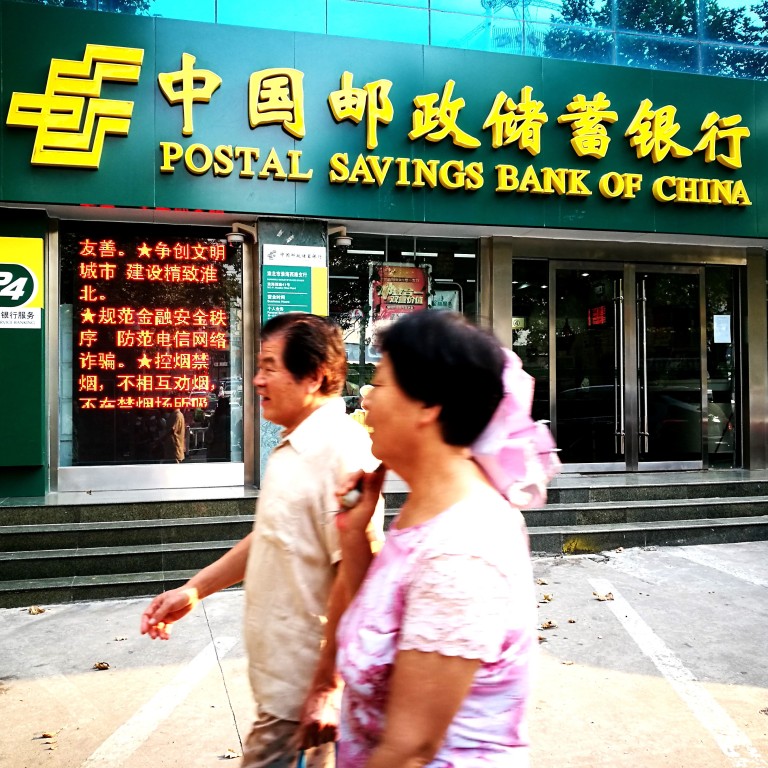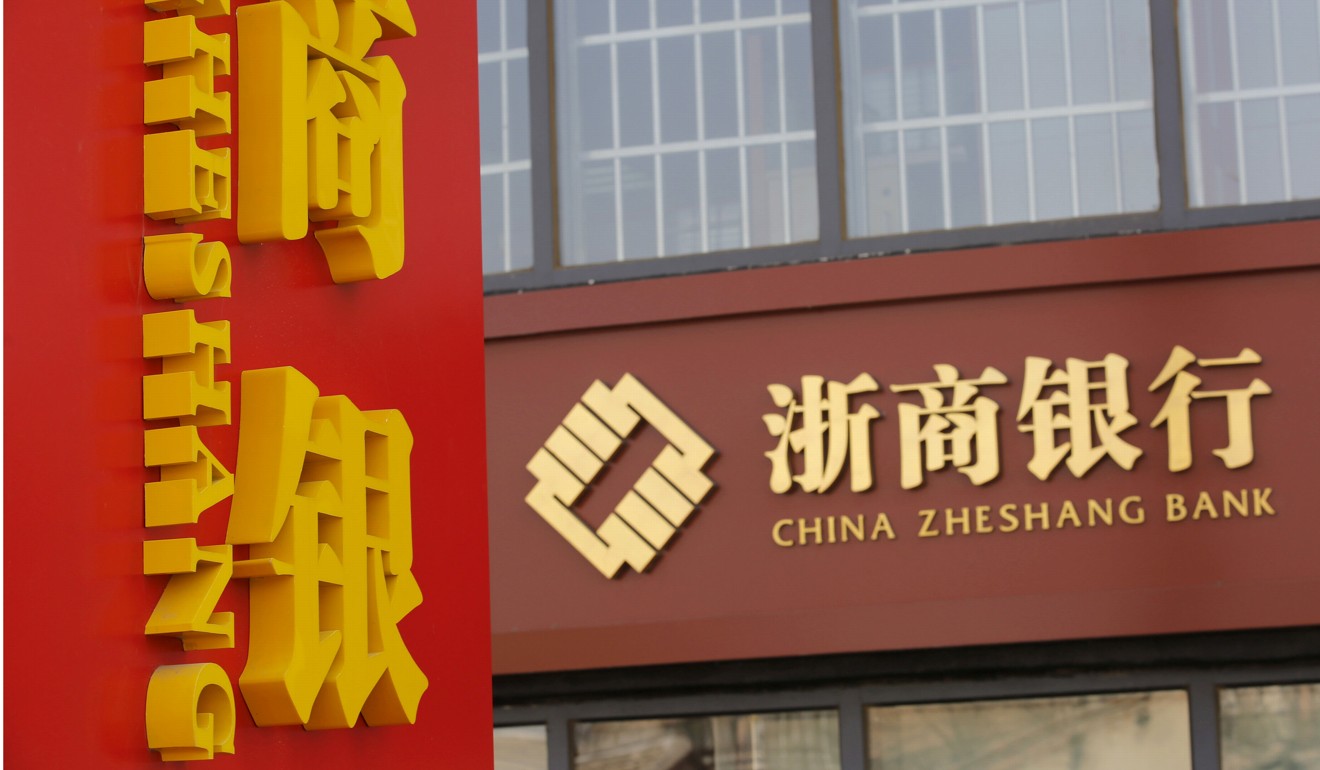
Postal Saving Bank’s IPO, China’s largest since 2015, faces huge pressure as investor exuberance fades
- One of China’s largest state-owned lenders is looking to raise around 28.4 billion yuan (US$4 billion)
- It could potentially be the world’s fourth-largest listing this year behind Alibaba, Uber and Budweiser Brewing
What’s poised to be China’s biggest listing since 2015 faces a headwind: investors are losing interest in mainland stocks.
State-owned lender Postal Savings Bank of China is looking to raise around 28.4 billion yuan (US$4 billion) in what would be the largest onshore share sale since 2015. It follows a flurry of initial public offerings that have faded quickly, amid slumping trading activity and a steady decline in new stock accounts that signals a lack of exuberance in China’s market.
It contrasts with the start of the year when turnover surged beyond 1 trillion yuan for the first time in years and multiple gauges roared into bull markets. Such confidence has since been eroded by the twists and turns of US-China trade negotiations, a slowing economy and weakness in corporate earnings.
Lacklustre debuts on Shanghai’s new Star market haven’t helped, with the board losing its shine amid a flood of issuance. Of the 36 stocks listed in the A-share market since October 29, seven have dropped below their IPO price, according to data compiled by Bloomberg.
“Investors are leaving the stock market, because the market is lacking in moneymaking opportunities,” said Jiang Liangqing, a money manager at Ruisen Capital Management in Beijing. “It has become more common for new listings to flop.”
Turnover on mainland exchanges is down 71 per cent from March’s high. The Shanghai Composite hasn’t moved by more than 2 per cent since August, while 30-day volatility is at its lowest since early 2018. The number of new stock trading accounts dropped 18 per cent in October from September, the third monthly decline in a row.
With its foothold in Hong Kong’s stock market, Alibaba sets itself a lifespan goal of 102 years
One of China’s largest state-owned lenders, Postal Bank would potentially be the world’s fourth-largest listing this year behind Alibaba Group Holding’s US$11 billion share sale this month, Uber Technologies’ US$8.1 billion IPO in May and that of Budweiser Brewing in September.
“Postal Bank, as a large-cap stock, will face pressure under the current market conditions,” said Yang Delong, chief economist at First Seafront Fund. “Market turnover is low and liquidity is not abundant. There is a chance that some retail investors will want to back out from the subscription.”
For years, stock debuts in China were a slam-dunk trade, valued at no more than 23 times earnings and typically popping by the 44 per cent limit on their first day. Curbs on supply and valuations saw mainland IPOs bring more than 400 per cent-a-month returns. That all changed this year when regulators eased restrictions for Star market stocks, though those changes have yet to be rolled out to other venues.

On Tuesday, China Zheshang Bank made the worst mainland trading debut since Haixin Foods in 2012, according to data compiled by Bloomberg. The Zhejiang-based lender rose a mere 0.6 per cent on Shanghai’s main board, before tumbling nearly 5 per cent on its second day of trading.
“The stock market is lacking any catalysts, so investors believe it will be rangebound for the foreseeable future,” said Ge Shoujing, a Beijing-based senior analyst at the Reality Institute of Advanced Finance.
“Institutional investors are locking up their profits ahead of the year’s end,” he said. “If the stock market isn’t falling, then that’s good enough.”
China’s stocks are sitting on outsize gains this year, as with equity markets around the world. The Shanghai Composite Index is up more than 16 per cent.

